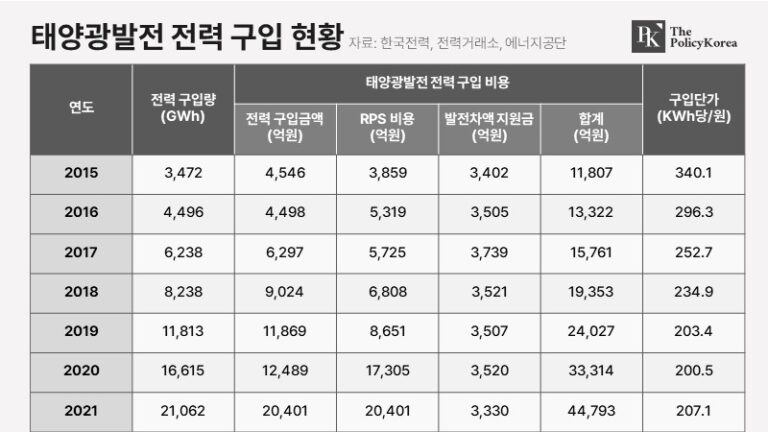First attack on Houthi rebel base in the US and UK, risk of escalation of war in Middle East
“Tomahawks were fired” US, UK begin airstrikes on Houthi rebel base Attacks on ships in the Red Sea and seizure of US oil tankers intensify tensions in the Middle East The purpose is to demonstrate presence and keep Israel in check rather than to intervene in the war

The United States and Britain carried out large-scale bombings on the strongholds of pro-Iran rebels ‘Houthi’ in Yemen. After the Houthi rebels attacked a civilian ship passing through the Red Sea and Iran even captured an American oil tanker, they launched a retaliatory airstrike. This bombing is the first armed airstrike launched by the US-British coalition in the Middle East since the war in Gaza that broke out in October last year, raising concerns that it could escalate into an all-out war between the US and Iran.
US and UK launch surprise attack on Houthi rebel base in Yemen
On the 12th (local time), the United States and Britain launched a surprise attack on the military facilities of the pro-Iran Yemeni rebels Houthis, who had been attacking the Red Sea, the world’s main artery of logistics. US President Joe Biden issued a statement on this day, saying, “US and British troops successfully struck multiple Houthi targets in Yemen with support from Australia, Bahrain, Canada, and the Netherlands.” British Prime Minister Rishi Sunak also called the attack a “necessary and proportional measure (to the Houthi attack).”
According to the U.S. Central Command, the U.S.-British coalition mobilized submarines and fighter jets to attack more than 60 targets in 16 Houthi rebel bases. This included the Houthis’ command and control facilities, munitions storage, and air defense radar systems. Central Command declared the attack “a multinational strike that strengthens the international community’s commitment to freedom of navigation and counters Houthi attacks on commercial shipping in the Red Sea.”
The attack involved fighter planes, ships, submarines, and Tomahawk cruise missiles. The Tomahawk has a relatively slow flight speed of 890 km/h, but is capable of precision strikes. CNN reported, “America’s most ‘classic’ military operation is to create a ‘wild place’ with an air strike centered on Tomahawks and then deploy ground forces.” The Tomahawk, which became famous for destroying major military facilities in Iraq during the 1991 Gulf War, always appears in Afghanistan and Syria, and is also called the ‘signal of US military intervention’.
The Houthis, who suffered a surprise attack, told AFP, “At least five people were killed in this airstrike. “The United States and others will pay a price,” he said, adding, “We will not stop attacking Israeli-related ships.” Iran also strongly criticized it, calling it “a clear violation of Yemen’s sovereignty and territorial integrity and a violation of international law.” Russia, which supported Hamas, also requested an emergency meeting of the UN Security Council immediately after the airstrike.
Military conflict in the Red Sea is expected to continue for some time. In a report immediately after the airstrike, the think tank Atlantic Council predicted that “the airstrikes will not stop just once.” William Usher, a former senior Middle East analyst at the U.S. Central Intelligence Agency (CIA), also said, “The Houthi rebels are an incredibly uncompromising organization in the Middle East,” and “they will not back down easily.” However, it is unclear whether this air strike will escalate into an all-out war. Experts predict that the Iranian government’s attitude will serve as a decisive variable in the future. Iranian Foreign Ministry spokesman Nasser Qanani responded in a statement that day, saying, “We strongly condemn the US and UK military attacks,” but did not mention a specific response.

“We will return you to the Stone Age,” the Houthis’ series of provocations
The recent capture of a U.S. ship was a decisive factor in the U.S. and British carrying out airstrikes on the Houthi rebels’ base. On the 11th (local time), a day before this airstrike, Iran captured the US oil tanker ‘Saint Nicholas’ in the Gulf of Oman, which is connected to the Gulf waters (Persian Gulf). On the same day, Houthi rebels fired a ballistic missile at a merchant ship passing through the Gulf of Aden. While the world’s major trade routes are under threat due to the Houthis’ attacks on ships in the Red Sea, a navigation crisis has also occurred in the Strait of Hormuz, the ‘artery’ of energy transport.
The Houthis have continued to attack and threaten commercial ships passing through the Red Sea since the war between Israel and the Palestinian Islamic militant group Hamas broke out on October 7 last year. The justification is to help Palestine against Israel’s invasion of the Gaza Strip. Recently, there were remarks that the Houthi rebels may launch an attack targeting submarine optical cables buried in the Bab el-Mandeb Strait. At the end of December last year, a post by a leader of the Houthi rebels, suggesting cutting submarine cables and saying, “It could return the West to the Stone Age,” went viral on social media. If the submarine cables buried in the Bab el-Mandeb Strait are cut, there are concerns that there will be chaos, including internet disruptions. This is because undersea cables connecting to Asia as well as undersea cables of global big tech companies are concentrated in the Bab el-Mandeb Strait, which is controlled by the Houthi rebels.
In response, 10 Western countries, including the United States and Britain, issued a joint declaration warning that Houthi rebels would pay a price if they continued their attacks on merchant ships in the southern Red Sea. Although the United States has carried out attacks targeting pro-Iranian militias in Iraq and Syria since the war between Israel and Hamas, this is the first airstrike against Houthi rebels in Yemen. The United States has so far hesitated to intervene militarily despite provocations by pro-Iranian forces for fear of a full-scale war escalation, but eventually began a counterattack when Iran demonstrated its control over the world’s main logistics artery.

The Houthis’ real intention is to ‘check Israel’
The Houthi rebels, supported by Iran, belong to the so-called ‘axis of resistance’ along with Palestine’s Hamas and the Lebanese armed faction Hezbollah. In order to expand its influence in the region, Iran has been gathering anti-American and anti-Israeli forces under the name of the Axis of Resistance. The Houthi rebels were founded by Mohammed al-Houthi in Sanaa, Yemen, in 1994. It began its armed activities in 2004 and clashed with the Yemeni regular army (eastern regime). When the regular army split during the Yemeni democratization movement in 2011, it absorbed some of its members and expanded its power. In 2014, they took control of the capital, Sanaa, and the central region, claiming that they were the official government ruling Yemen. Since then, Yemen has been virtually split in half and is experiencing a civil war. According to the United Nations, as of early last year, 377,000 people had died in the civil war in Yemen, and 4 million people had lost their homes.
The Yemeni civil war is also called a proxy war between Iran and Saudi Arabia. This is because the Houthi rebels are supported by Iran, the leader of the Shia sect, and the regular army is supported by Saudi Arabia, a Sunni suzerain state. Currently, the United Nations recognizes only the regular military as the official state of Yemen. However, the Houthi rebels can also be seen as a de facto nation in that they also have a head of government and ministers such as the Ministry of Foreign Affairs. Iran is the only country that recognizes the Houthi rebels as the government of Yemen, and the Houthi rebels are so anti-Iranian and anti-American and anti-Israel that they raise slogans such as ‘Death to America’, ‘Death to Israel’, and ‘Curse the Jews’. have similar tendencies.
The United States and Saudi Arabia are confident that Iran provides weapons and funds to the Houthi rebels, but Iran denies this. Supplying weapons to the Houthi rebels constitutes a violation of the UN’s arms embargo resolution. North Korea is also a supporter of the Houthis. Houthi rebel leaders and their North Korean counterparts met in Damascus, Syria, to discuss technology transfers and other issues of mutual interest, according to a 2018 secret report from the UN Security Council. Chatham House, a British think tank, reported in the Financial Times (FT), “The power of the Houthi rebels, who have gained practical combat experience through years of civil war, has been underestimated.” Last year, at a military parade held in Sanaa, the capital of Yemen, the Houthi rebels showed off their powerful military power by displaying fighter jets, drones, missiles, boats, and anti-ship mines.
However, the general consensus is that it is not actually easy for the Houthi rebels to directly intervene in the Israel-Hamas war. This is because Yemen and Israel are separated by more than 2,000 km, so it is impossible to put pressure on the Israeli mainland even with long-range missiles. There is also skepticism about whether the Houthi rebels, whose economy and infrastructure have collapsed due to the long civil war, can handle an external war. In other words, such provocations by the Houthi rebels are interpreted as an intention to show off their presence and keep Israel in check rather than to directly intervene in the war.


![[기자수첩] 전두환 손자의 충격적인 ‘마약 복용 생중계’ 한국의 실태인가](https://ipmkts.com/wp-content/uploads/sites/8/2023/11/20230317_203238-768x432.png)
![[기자수첩] 상업용 부동산 폭락에 도이체방크 위기설, 한국 부동산PF는?](https://ipmkts.com/wp-content/uploads/sites/8/2023/11/화면-캡처-2023-04-03-163829-768x433.jpg)
![[기자수첩] 노인 일자리 사업 ③ 유능한 관리자 선발해 안전 관리 강화해야](https://ipmkts.com/wp-content/uploads/sites/8/2023/11/교통사고.jpg)

![[기자수첩] 정부 산하 ‘협회’가 만든 ‘닫힌 사회’](https://ipmkts.com/wp-content/uploads/sites/8/2023/11/스타트업정부-폴리시-1-768x432.jpg)
![[대학개혁] 마케팅으로 만들어 낸 높은 대학 랭킹과 미국 온라인 대학들의 실상 ①](https://ipmkts.com/wp-content/uploads/sites/8/2023/11/대학망치-05-768x433.jpg)

 네이버계정으로 로그인하기
네이버계정으로 로그인하기
 카카오톡 계정으로 로그인하기
카카오톡 계정으로 로그인하기
